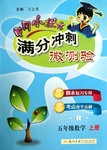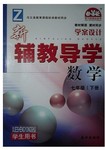题目内容
【题目】We know a lot about the advantages and disadvantages of reading a hard-copy book vs reading electronically. The problem is, many of us refuse to listen.
Don’t get me wrong: Digital reading has some real advantages. Ask people what they like most about reading on digital screens, and you hear over and again about convenience. More points for digital reading: e-books tend to be cheaper. There’s also the environmental argument. Think of the trees!
Yet the soundness of this case is arguable. The earth metals to build e-readers are not just rare but highly poisonous. And think about all that energy needed to run servers and cooling fans. And remember, trees are a renewable resource.
Then, there’s the appeal of a hard copy. Many people prefer print when reading both for pleasure and for school or work. Drawing examples from my own research, some of the reasons arc aesthetic(美学的). Others involve a sense of accomplishment, ease of annotation (“I can write on the pages”), and navigation (“easy to locate where I was”). Meanwhile, I hear abundant complaints about eye strain(干涩) and headaches when using screens.
Much of what students liked about reading print involved their minds. They say “it’s easier to focus.” Some also acknowledged they took more time with printed text and read more carefully.
But what makes the failure of electronic reading is concentration. More than 92 percent of those I surveyed said they concentrate best when reading a hard copy. When a digital device has an Internet connection, it’s hard to resist the temptation(诱惑).
So if digital interruptions don’t threaten your enjoyment or understanding of a text, then medium may not matter. Casual reading like David Baldacci? If you break to check sports scores, little harm done. But just don’t expect to understand Joyce’s novels this way.
【1】What is an advantage of reading a hard-copy book?
A. It is cheaper. B. It is easier to carry around.
C. It helps people think deeper. D. It provides instant information.
【2】What's the biggest problem of reading digitally?
A. Environmental concern. B. Physical discomfort.
C. Concentration. D. Internet connection.
【3】What’s the author’s attitude towards e-reading?
A. Supportive. B. Disapproving. C. Optimistic. D. Unconcerned.
【4】How is the passage mainly developed?
A. By analyzing possible reasons. B. By providing typical examples.
C. By listing practical suggestions. D. By presenting direct comparisons.
【答案】
【1】C
【2】C
【3】B
【4】D
【解析】文章分析了阅读纸质书和阅读电子书的优缺点,鼓励人们更多阅读纸质书。
【1】推理判断题。根据文章第五段Much of what students liked about reading print involved their minds. They say “it’s easier to focus.” Some also acknowledged they took more time with printed text and read more carefully.(学生们喜欢阅读纸质书主要是关乎他们的思想,他们说“更容易专注”。一些学生也承认他们花更多的时间阅读纸质课文并会读的更加认真。故阅读纸质书的优点是帮助人们更深刻的思考,故选C。
【2】细节理解题。根据文章倒数第二段But what makes the failure of electronic reading is concentration.可知,让电子阅读失败的原因是专注。电子阅读的最大问题是专注,故选C。
【3】推理判断题。根据文章最后一句If you break to check sports scores, little harm done. But just don’t expect to understand Joyce’s novels this way.(如果你只是查看一下体育比赛分数,没关系。但是不要期望用这种方法理解Joyce的小说。)可推断,作者对阅读电子书是不赞成的,故选B。
【4】写作手法题。根据文章内容可知,文章通过比较阅读纸质书和阅读电子书的优缺点展开阐述,故正确答案是D。

 小天才课时作业系列答案
小天才课时作业系列答案 一课四练系列答案
一课四练系列答案 黄冈小状元满分冲刺微测验系列答案
黄冈小状元满分冲刺微测验系列答案 新辅教导学系列答案
新辅教导学系列答案 阳光同学一线名师全优好卷系列答案
阳光同学一线名师全优好卷系列答案